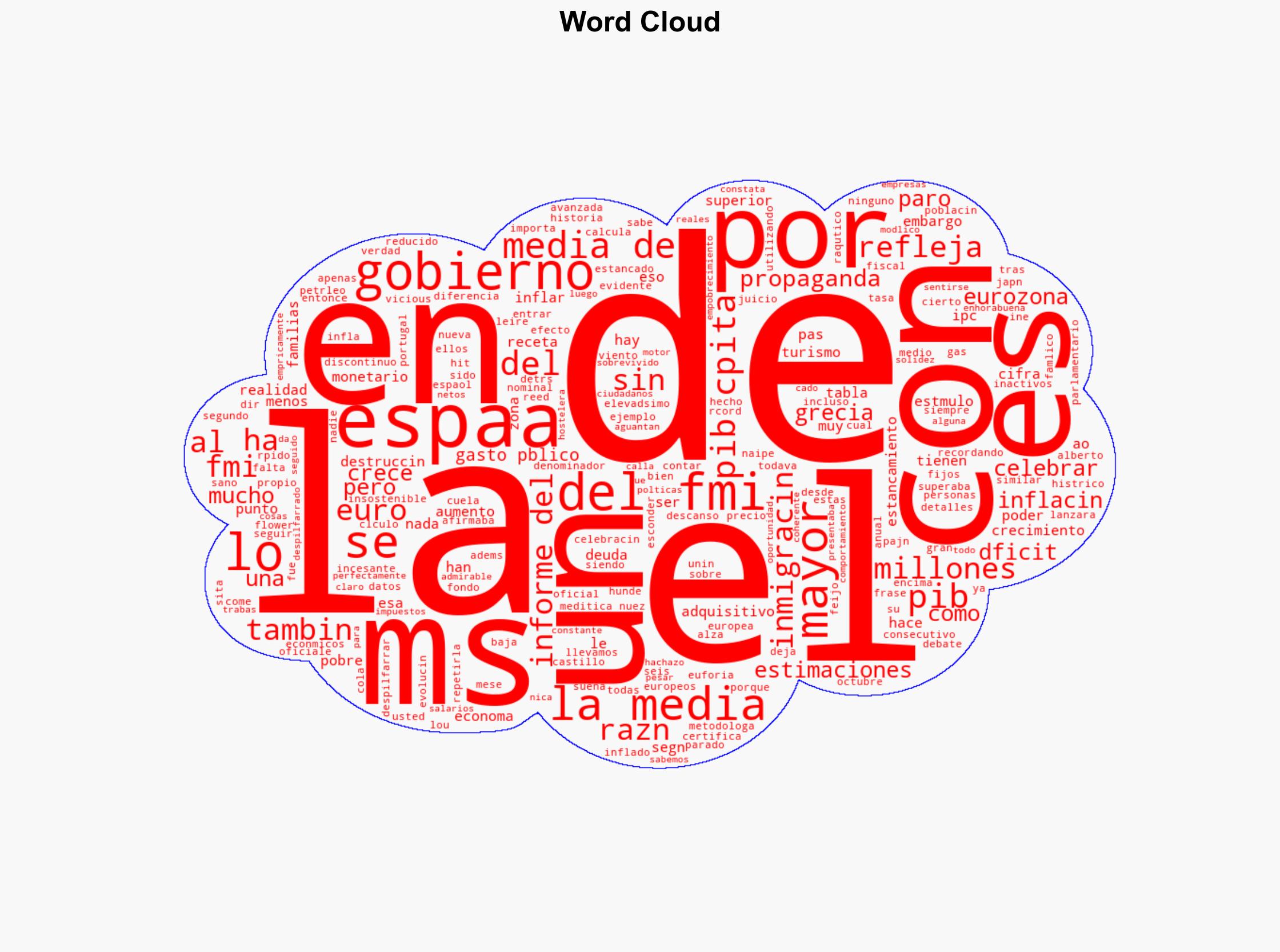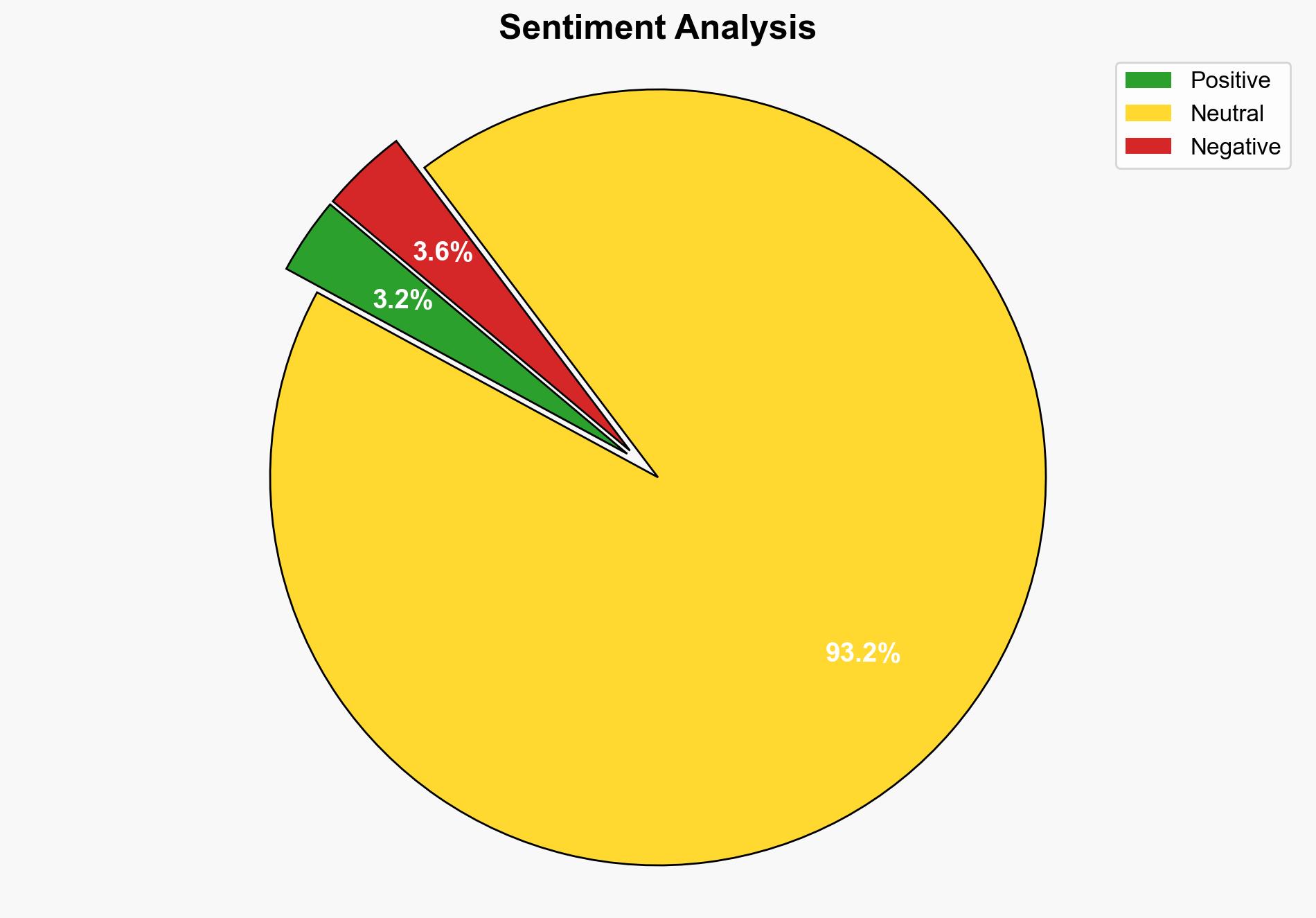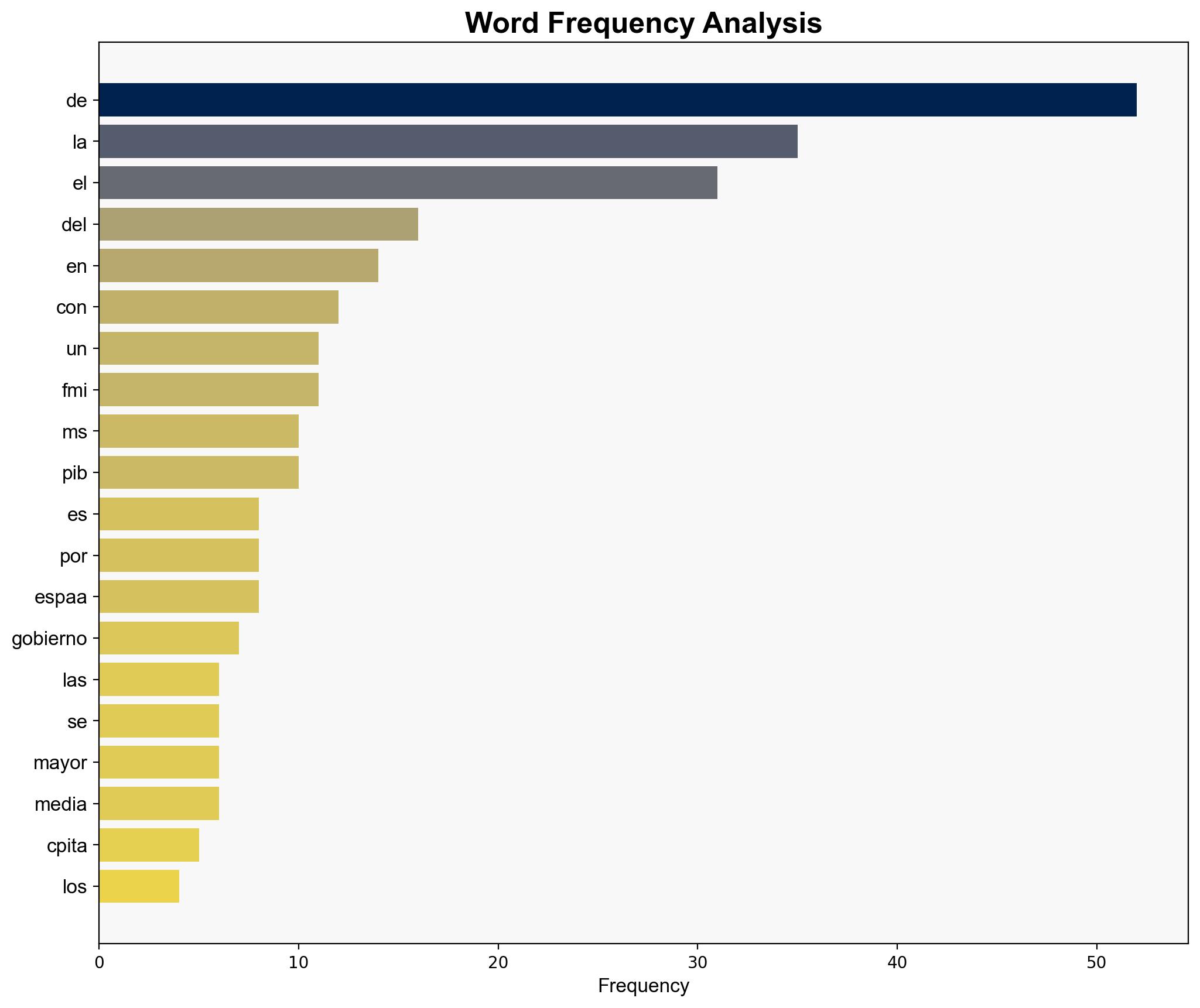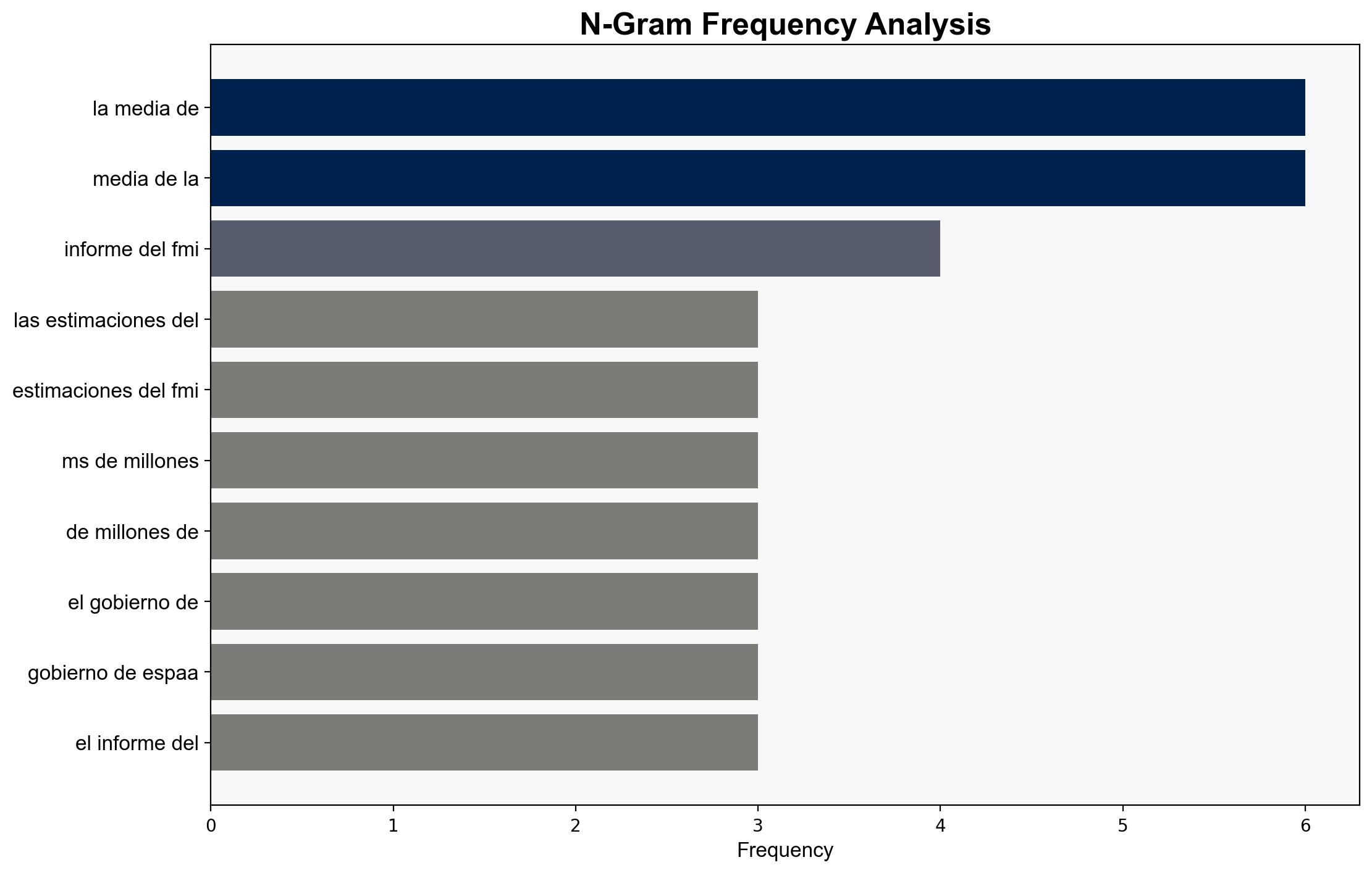Ms all de la propaganda La verdad sobre las previsiones del FMI – Elespanol.com
Published on: 2025-10-18
Intelligence Report: Ms all de la propaganda La verdad sobre las previsiones del FMI – Elespanol.com
1. BLUF (Bottom Line Up Front)
The analysis reveals that the Spanish government’s optimistic portrayal of economic growth, as supported by IMF forecasts, may not accurately reflect the underlying economic conditions. The most supported hypothesis suggests that the economic growth is artificially inflated through public spending and immigration, masking underlying issues such as high unemployment and stagnant GDP per capita. Confidence level: Moderate. Recommended action: Conduct a deeper investigation into the economic policies and their long-term sustainability, while preparing for potential economic instability.
2. Competing Hypotheses
– **Hypothesis 1**: The Spanish government’s economic narrative, supported by the IMF, accurately reflects a robust economic recovery driven by effective fiscal policies and external factors like tourism and energy prices.
– **Hypothesis 2**: The economic growth is overstated, with the government leveraging public spending and immigration to inflate GDP figures, while underlying economic issues such as high unemployment and low GDP per capita remain unaddressed.
Using the Analysis of Competing Hypotheses (ACH) 2.0, Hypothesis 2 is better supported due to evidence of stagnant GDP per capita, high unemployment rates, and reliance on temporary economic stimuli rather than sustainable growth.
3. Key Assumptions and Red Flags
– **Assumptions**: Hypothesis 1 assumes that the IMF’s forecasts are comprehensive and that government policies are effectively stimulating sustainable growth. Hypothesis 2 assumes that the reported economic growth is not sustainable and relies on temporary measures.
– **Red Flags**: The discrepancy between GDP growth and GDP per capita, high unemployment rates despite reported economic growth, and the potential manipulation of unemployment statistics.
– **Cognitive Bias**: Confirmation bias may lead stakeholders to favor optimistic economic narratives without scrutinizing underlying data.
4. Implications and Strategic Risks
– **Economic Risks**: Potential for economic instability if temporary stimuli are withdrawn and underlying issues are not addressed.
– **Geopolitical Risks**: Spain’s economic performance could impact its influence within the EU, especially if economic disparities with other member states widen.
– **Psychological Risks**: Public disillusionment if economic realities do not match government narratives, potentially leading to social unrest.
5. Recommendations and Outlook
- Conduct a comprehensive audit of Spain’s economic policies and their long-term viability.
- Engage with independent economic analysts to verify government-reported data.
- Scenario Projections:
- Best Case: Sustainable economic reforms lead to genuine growth and reduced unemployment.
- Worst Case: Economic downturn as temporary stimuli fade, leading to increased unemployment and social unrest.
- Most Likely: Continued reliance on public spending with moderate growth, but persistent underlying economic issues.
6. Key Individuals and Entities
– Alberto Núñez Feijóo: Critic of the government’s economic policies.
– Leire Pajín: Referenced in the context of past economic narratives.
7. Thematic Tags
economic stability, public policy, European Union, fiscal policy, unemployment





